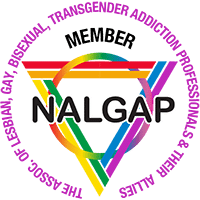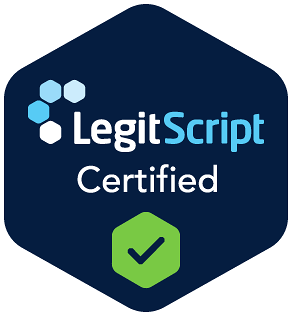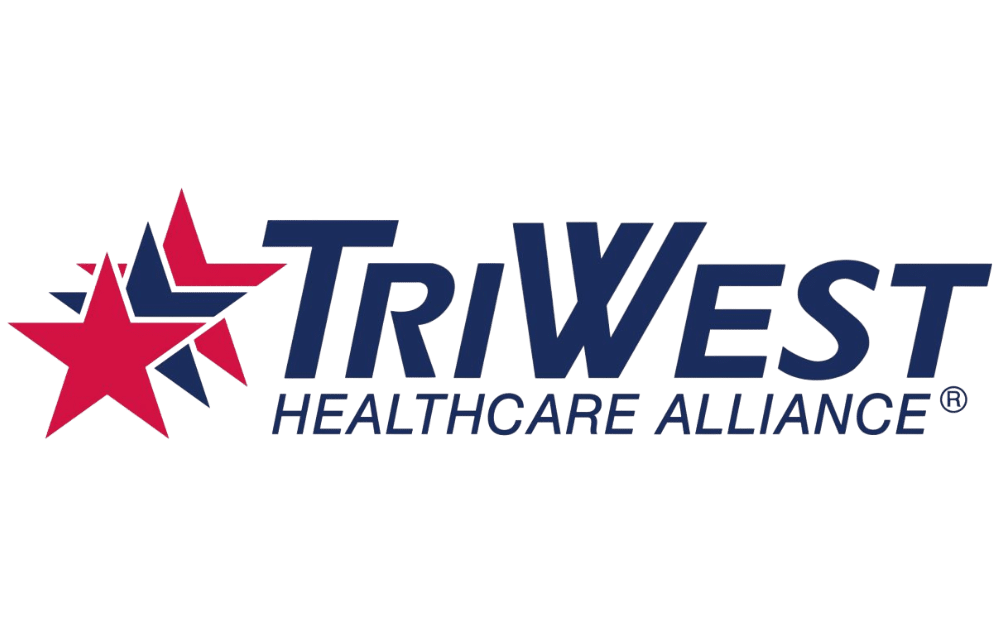Denver co drug rehab
Integrative Approach to Recovery
Mile High Recovery Center in Denver, a beacon of hope for those seeking assistance with addiction, provides a comprehensive integrative approach to recovery. This facility stands out for its combination of evidence-based clinical therapies and experiential modalities, aiming to treat both the mind and soul. The center’s offerings, including Cognitive Behavioral Therapy, Dialectical Behavior Therapy, and EMDR, are backed by scientific research to support the recovery journey effectively. These therapeutic interventions are further enhanced by activities like adventure therapy and equine-assisted therapy, which provide clients with holistic healing experiences.
Driven by a commitment to its clients, Mile High Recovery Center believes in a personalized treatment model. Each individual’s journey is unique, and their programs reflect this understanding by catering to specific needs and preferences. This ensures that clients receive the most effective care possible, targeting both substance use disorders and co-occurring mental health conditions.
Supportive Housing and Community
The concept of a supportive community is central to Mile High Recovery Center’s philosophy. With nine sober living homes, the center provides a structured and supportive environment that promotes long-term sobriety. These homes bridge the gap between intensive treatment and reintegration into society, offering a safety net for individuals in early recovery.
Each sober living house is designed to foster a sense of belonging and accountability, crucial factors for sustained recovery. Residents engage in daily routines and participate in therapeutic activities, reinforcing the skills and habits learned during treatment. This community-driven approach not only aids individual recovery but also creates a network of peer support that extends beyond treatment walls.
Comprehensive Addiction Treatment
Mile High Recovery Center offers a full continuum of care that covers every stage of the recovery process. From residential treatment to outpatient programs, their services cater to varying needs and circumstances. The center is particularly noted for its ability to provide same-day admission and 24-hour access for intake, demonstrating its dedication to immediate and responsive care.
The comprehensive programs available include partial hospitalization, intensive outpatient, and outpatient options, allowing clients to transition smoothly through different levels of care as they progress. Medication-assisted treatment, including Suboxone and Vivitrol, is also a critical component of their services, ensuring that individuals receive the medical support necessary for managing cravings and withdrawal symptoms.
Diverse Treatment Modalities
At Mile High Recovery Center, the integration of various treatment modalities ensures that clients have a well-rounded recovery experience. Experiential therapies such as art and music activities provide creative outlets for self-expression and emotional processing. These therapies offer a different perspective on healing, complementing traditional clinical approaches and adding richness to the treatment process.
Nutrition education is another innovative aspect of their program, aiming to improve overall health and well-being. Understanding the impact of diet on mental health and recovery, the center incorporates nutritional guidance to support clients in achieving a balanced lifestyle.
Focus on Co-occurring Disorders
Recognizing the complexity of addiction, Mile High Recovery Center provides specialized care for individuals with co-occurring mental health disorders. The facility treats a wide range of conditions, including anxiety, PTSD, bipolar disorder, and schizoaffective disorders. This dual-diagnosis approach addresses the interplay between mental health and substance use, ensuring comprehensive care.
By integrating mental health services into their addiction treatment programs, the center helps clients understand and manage their mental health conditions effectively. This holistic approach not only improves treatment outcomes but also enhances overall quality of life.
LGBTQ-Inclusive Care
Mile High Recovery Center is committed to providing inclusive and affirming care for individuals from the LGBTQ community. Recognizing the unique challenges faced by this population, the center offers tailored programs that address specific needs and concerns. This approach fosters a safe and supportive environment where clients can embrace their identities while focusing on recovery.
The staff, which includes members with lived recovery experiences, is trained to deliver culturally competent care that respects diversity and promotes equality. This dedication to inclusivity not only enhances the treatment experience but also builds trust and rapport between clients and care providers.
Affordable and Accessible Care
Accessibility and affordability are key priorities for Mile High Recovery Center. The facility accepts major insurance carriers, including Aetna, Cigna, and Blue Cross Blue Shield, ensuring that clients can access quality care without financial burden. They also handle insurance verifications and accept in-network reimbursements to streamline the process for clients.
For those lacking insurance, the center offers guidance on financial options and supports that can help navigate treatment costs. This commitment to accessibility ensures that everyone seeking help has the opportunity to receive the care they need.
Alumni Support Network
A strong and active alumni community is a cornerstone of Mile High Recovery Center’s long-term recovery strategy. Alumni support and guidance play a crucial role in maintaining sobriety and preventing relapse. Through regular meet-ups, events, and continued access to therapeutic resources, former clients remain connected and engaged with their recovery community.
This ongoing support network is vital for sustaining motivation and accountability, offering encouragement and inspiration to both new and seasoned alumni. It represents the center’s commitment to fostering long-lasting recovery and resilience beyond initial treatment phases.
Collaborative Care Team
The care team at Mile High Recovery Center is comprised of experienced clinicians and staff members who understand the challenges of addiction from personal experience. This blend of professional expertise and lived experience provides clients with empathetic and informed care. The team works collaboratively to develop individualized treatment plans that address each client’s unique needs and goals.
Their collaborative approach extends to partnerships with local healthcare providers and insurers, ensuring coordinated and seamless transitions of care. This network of support facilitates comprehensive treatment and reinforces the center’s emphasis on community-based recovery solutions.
What makes Mile High Recovery Center’s approach unique?
Mile High Recovery Center employs an integrative approach to addiction treatment that focuses on both clinical and experiential therapies. This means they combine evidence-based practices like Cognitive Behavioral Therapy (CBT) and Dialectical Behavioral Therapy (DBT) with unique therapies such as adventure and equine-assisted therapy. This holistic approach helps treat not just the substance use disorder but also co-occurring mental health issues, which is critical for long-term recovery. For example, while traditional therapies may focus on thought processes and emotional regulation, adventure therapy might encourage clients to engage in activities that build confidence and resilience, adding another layer to the healing process. This comprehensive care model can be particularly effective, offering clients diverse tools and resources for personal growth and recovery.
How does Mile High Recovery Center support individuals with co-occurring disorders?
Addressing co-occurring disorders is a cornerstone of Mile High Recovery Center’s treatment philosophy. The center integrates mental health services directly into its addiction treatment programs, accommodating those who are managing conditions such as anxiety, PTSD, and bipolar disorder alongside substance use issues. This dual-diagnosis approach ensures the multifaceted needs of clients are met, creating a more personalized and effective treatment plan. Imagine dealing with both depression and addiction simultaneously; treating one without addressing the other might circumvent comprehensive healing. Mile High Recovery’s synchronized care model helps clients not only manage their symptoms but also understand the interplay between mental health and addiction, enhancing their overall quality of life.
Why is supportive housing an essential part of recovery at Mile High Recovery Center?
Supportive housing bridges the gap between intensive treatment and independent living. At Mile High Recovery Center, this concept is actualized through their nine sober living homes. These homes provide a structured and supportive environment that fosters long-term sobriety and offers a sense of community and accountability. Think of it as a stepping stone–residents can practice the skills they’ve acquired during treatment within a safe setting before fully reintegrating into society. This environment encourages individuals to form peer connections and build a network of support that lasts beyond their stay at the treatment center. The sense of belonging and shared commitment to recovery is powerful, offering individuals the reinforcement they need to maintain their sobriety in the long run.
What role does experiential therapy play in recovery at Mile High Recovery Center?
Experiential therapy is a distinctive feature at Mile High Recovery Center, offering clients alternative avenues for healing and self-discovery. This approach involves activities like art and music therapy, which allow individuals to express emotions in non-verbal ways, and more physically engaging therapies like adventure and equine-assisted therapy. For someone who might struggle to articulate feelings in traditional talk therapy, expressing themselves through art or physical activity can be incredibly liberating and insightful. These therapies can uncover underlying issues and foster personal growth by engaging clients in environments that challenge them to learn about themselves and their capabilities. It brings healing to life in a very tangible and often transformative way.
How does Mile High Recovery Center ensure care is accessible and affordable?
Accessibility and affordability are central to Mile High Recovery Center’s mission. The center accepts major insurance carriers, streamlining the process for clients who might otherwise find the financial aspect of treatment daunting. They handle insurance verifications and accept in-network reimbursements, ensuring that financial concerns don’t become a barrier to receiving care. For those without insurance, the center provides guidance on financial aids and supports to help navigate potential costs. This dedication to making treatment available to all who need it reflects their commitment to community well-being and underscores the importance of removing barriers to accessing necessary healthcare services.
How does Mile High Recovery Center address the needs of the LGBTQ+ community?
Recognizing the unique challenges faced by the LGBTQ+ community, Mile High Recovery Center offers inclusive and affirming care tailored to meet their specific needs. The center staffs individuals with lived recovery experiences and trains all personnel to provide culturally competent care that respects diversity and encourages equality. This environment fosters safety and support, allowing individuals to focus on recovery while embracing their identities. Imagine being part of a community where you don’t have to hide any aspect of yourself–this freedom is essential for holistic recovery. It builds trust between clients and providers and ensures that everyone receives the most respectful and effective care possible.
What are the benefits of alumni support networks in recovery?
Alumni support networks are an integral part of sustaining long-term recovery at Mile High Recovery Center. These networks provide a sense of continuity and community that helps individuals maintain sobriety and prevent relapse. Through regular meet-ups and access to ongoing therapeutic resources, alumni can stay connected and engaged with fellow peers who understand their journey. Take, for instance, someone who has completed treatment but faces challenges months later; having an established support network means they can reach out, share experiences, and garner encouragement. This shared commitment to lifelong recovery strengthens motivation and accountability, making it a powerful tool for anyone progressing through and beyond their treatment.
How does Mile High Recovery Center manage immediate care needs during the admission process?
Mile High Recovery Center demonstrates its dedication to responsive care by offering same-day admission and 24-hour intake access. This approach is crucial for individuals who decide to seek help, as timing can be everything when it comes to addressing addiction. Whether it’s a loved one or a self-referral, when someone is ready to begin their recovery journey, delays can lead to doubts or second thoughts. By providing immediate access to treatment, the center ensures that clients can start receiving the care they need as soon as they make the decision, enhancing their chances of a successful recovery.
Are there multiple levels of care available at Mile High Recovery Center?
Yes, Mile High Recovery Center offers a full spectrum of care, from residential treatment to outpatient services, ensuring that clients transition seamlessly through different levels of treatment as they progress. The continuity of care spans partial hospitalization, intensive outpatient, and standard outpatient programs, each tailored to meet the evolving needs of the client. For example, an individual might start with residential treatment for intensive stabilization and then move to outpatient programs as they become more stable and independent. This flexibility allows individuals to receive the right level of care at the right time, supporting their recovery journey every step of the way.
Resources
- Substance Abuse and Mental Health Services Administration (SAMHSA) – SAMHSA is the leading agency within the U.S. Department of Health and Human Services focusing on behavioral health issues.
- National Alliance on Mental Illness (NAMI) – NAMI is the largest grassroots mental health organization dedicated to building better lives for the millions of Americans affected by mental illness.
- National Alliance of Advocates for Buprenorphine Treatment (NAABT) – NAABT is a nonprofit organization that helps educate the public about the disease of opioid addiction and the buprenorphine treatment option.
- National Institute of Mental Health (NIMH) – NIMH is the lead federal agency for research on mental disorders.
- National Institute on Drug Abuse (NIDA) – NIDA is a federal scientific research institute under the National Institutes of Health, focusing on drug abuse and addiction research.
















